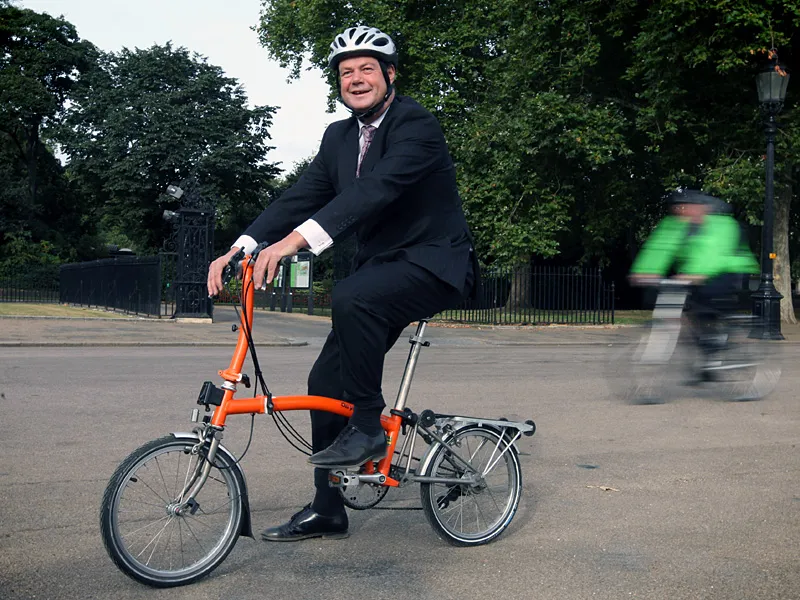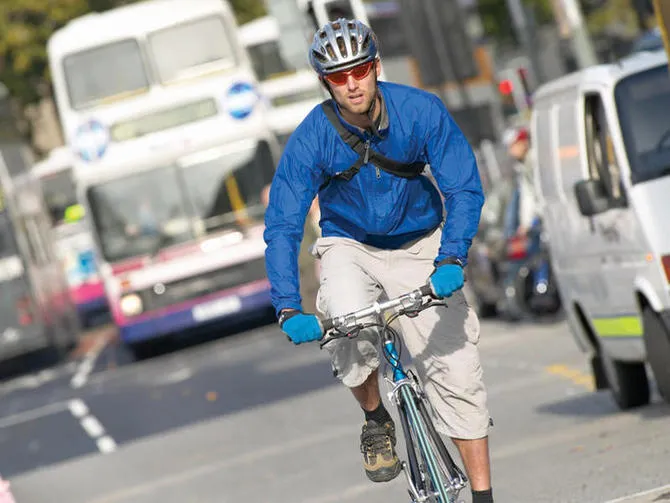Of the many UK commuting and campaigning stories BikeRadar covered in 2012, two areas stood out - cycle safety and cycling in London.
The issue of cycle safety was already being flagged up in February; the devastating injuries caused to Times journalist and cyclist Mary Bowers in late 2011 and the newspaper's subsequent Cities Fit For Cycling campaign launch in early 2012 proved a catalyst for political activity.
Around the same time, government figures released for 2011 showed the numbers of cyclists being killed and seriously injured increasing against a backdrop of more encouraging figures for other road users. The trend was confirmed in June and again in early November, and this time the stats also stressed how things had improved little over the last decade.
A survey of the general public by cycling charity Sustrans found that over half of those canvased thought roads were unsafe for cycling. Two thirds of those who didn’t cycle regularly would be more likely to ride on the roads if they were made safer by changes such as lower speed limits, more marked cycle lanes and more care taken by drivers and other cyclists.
Government attention
The media foray played a part in the surge in political activity at Westminster throughout the year, as 23 February saw the House of Commons debate cycle safety for the first time since 1996. The government's subsequent Think Cyclist campaign didn't, however, seem like a fitting response.
The government spotlight will fall on cycling safety once again in April 2013, after November saw a call for evidence to be presented to the Get Britain Cycling inquiry.

Transport Minister Stephen Hammond launches the THINK! CYCLIST campaign
It remains to be seen whether this is a flash in the pan issue at Westminster, or whether improving conditions for cyclists really has found its way onto the mainstream political agenda after years of being overlooked.
Boris Johnson re-elected as mayor
The London mayoral election saw a further ramping up of pressure on a different set of politicians, this time from a wide range of groups, including the London Cycling Campaign's Big Ride in late April. There was some impressive coordination here, with similar mass rides on the same day in Edinburgh, Paris and Rome.
Boris Johnson scraped over the winning line of the mayoral election on 3 May 2012, even though he was not judged to be the most cycle-friendly candidate. He might now have a rival in the 'bike-friendly mayor' stakes, as Sustrans founding member and cyclist George Ferguson was elected mayor of Bristol in November.
May saw the Welsh parliament picking up the cycling gauntlet, in the form of a proposed law to make cycle route implementation a legal obligation.
London and the Olympics
After the 2012 Olympics, the massive success of Team GB's cyclists didn't seem to be replicated by what was happening for everyday cyclists in the UK capital.
A major off-road commuter route was closed off around the Olympic Park for the duration of the Games, and early August saw a cyclist killed near the main venue, with comments from Bradley Wiggins in the aftermath.
London dominated the cycling world's news in the second half of the year to an even greater extent, with lorry safety being highlighted by the London Cycling Campaign's effective Safer Lorries, Safer Cycling initiative.
There was good and bad news for mayor Boris Johnson, too. The worst was probably the increase in charges for the Barclays Cycle Hire scheme, a project he introduced during his previous term in office. Potential expense didn't stop the city of Liverpool announcing plans for their own cycle hire scheme, though.
A main issue of contention and an area of that could herald improved riding conditions for London cyclists is Transport for London's ongoing junction review, which the London Cycling Campaign have input on. Signs at the first major redesign, Waterloo roundabout, weren't particularly encouraging from an LCC standpoint.
The year end saw the promise of further investment in London cycling. In the wake of a detailed London Assembly report into cycle safety in London, Boris Johnson's cycling cachet rose again as he announced an intention to build a major new East-West Superhighway and a further £913 million investment in cycling over the next decade. This rather overshadowed the announcement of £20 million for UK-wide cycling initiatives.

